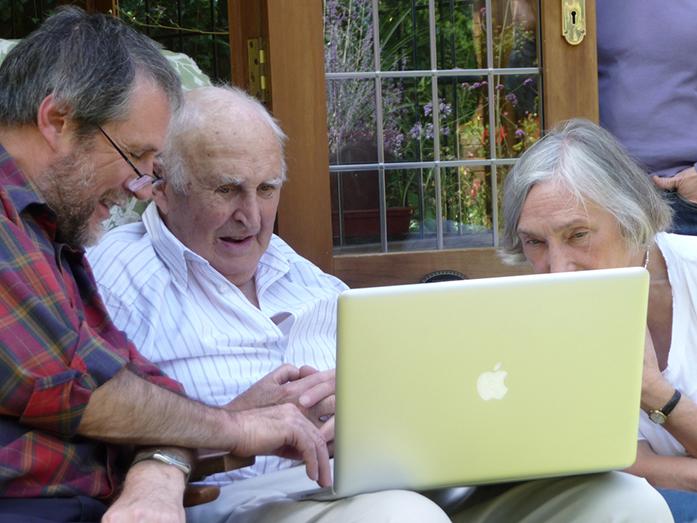By Charlie Peckman
Technology and senior citizens do not necessarily mix well, at least according to Albert Hood, who has worked with senior citizens since his retirement in 2001.
Before retiring, Hood worked as a University of Iowa professor of education at the for 35 years. Although his research during his tenure at the UI primarily involved college students, his efforts during retirement have focused on the aging population of Iowa.
Hood helped organize a “Senior Tech Zone” meeting at the Iowa City Public Library on Thursday. The event was created to assist senior citizens with technology problems, he said.
“Between email and Facebook to keep track of the grandkids, seniors use technology in many ways,” he said.
Iowa currently has 491,000 senior citizens, according to 2016 figures from the Iowa Data Center. The same data also showed that in 2014, 40.3 percent of Iowans age 65 and over lived in Johnson, Polk, Linn, Scott, Black Hawk, Dubuque, Pottawattamie, and Woodbury Counties.
Hood also helped create the Senior College, a network of volunteers whose goal is to promote intellectual growth of Iowa City’s senior population. Thursday’s event is one facet of the Senior College movement, which has helped senior citizens with a multitude of technological problems.
After his retirement in 2001, Hood helped pioneer a precursor to the “Senior Tech Zone” program. That program aimed to help seniors find part-time jobs in the Internet age. Hood said it seems like the first step in applying for a job these days is logging onto a computer.
As technology advanced, he said, seniors became more acclimated to other gadgets such as cellphones and tablets, with the needs of the group expanded from job finding to recreation. Job applications turned into Facebook posts, and Hood said he is “happy to see more and more people coming in with laptops and smartphones.”
Hood admits the pitfalls of his program however, stating he “can’t solve every problem,” and when he can’t find solutions to the problems, he looks it up online.
Michael Bray, a senior citizen who attended Thursday’s meeting, comes weekly to check his email. Although he is becoming more accustomed to logging on, he said, “I don’t think I’ll ever buy a computer.”
On the topic of communication in the 21st century versus “antiquated” methods such as letter writing, Hood said the ease of email versus doing everything manually is why we can communicate with so many people.
Both Bray and Hood could agree that instant communication such as email has its drawbacks however, such as receiving countless emails from businesses and political campaigns.
Although senior citizens sometimes have difficulty with technology, the problem is not limited to them. Alex Romero, a freshman at the UI, said he admits he does not know everything about technology.
“It has bettered me in the sense that information is more readily accessible,” he said. “Whatever I need is at my fingertips.”







